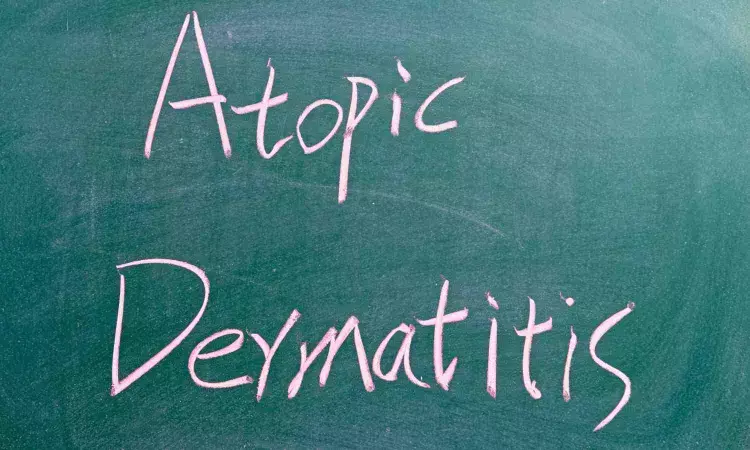- Home
- Medical news & Guidelines
- Anesthesiology
- Cardiology and CTVS
- Critical Care
- Dentistry
- Dermatology
- Diabetes and Endocrinology
- ENT
- Gastroenterology
- Medicine
- Nephrology
- Neurology
- Obstretics-Gynaecology
- Oncology
- Ophthalmology
- Orthopaedics
- Pediatrics-Neonatology
- Psychiatry
- Pulmonology
- Radiology
- Surgery
- Urology
- Laboratory Medicine
- Diet
- Nursing
- Paramedical
- Physiotherapy
- Health news
- Fact Check
- Bone Health Fact Check
- Brain Health Fact Check
- Cancer Related Fact Check
- Child Care Fact Check
- Dental and oral health fact check
- Diabetes and metabolic health fact check
- Diet and Nutrition Fact Check
- Eye and ENT Care Fact Check
- Fitness fact check
- Gut health fact check
- Heart health fact check
- Kidney health fact check
- Medical education fact check
- Men's health fact check
- Respiratory fact check
- Skin and hair care fact check
- Vaccine and Immunization fact check
- Women's health fact check
- AYUSH
- State News
- Andaman and Nicobar Islands
- Andhra Pradesh
- Arunachal Pradesh
- Assam
- Bihar
- Chandigarh
- Chattisgarh
- Dadra and Nagar Haveli
- Daman and Diu
- Delhi
- Goa
- Gujarat
- Haryana
- Himachal Pradesh
- Jammu & Kashmir
- Jharkhand
- Karnataka
- Kerala
- Ladakh
- Lakshadweep
- Madhya Pradesh
- Maharashtra
- Manipur
- Meghalaya
- Mizoram
- Nagaland
- Odisha
- Puducherry
- Punjab
- Rajasthan
- Sikkim
- Tamil Nadu
- Telangana
- Tripura
- Uttar Pradesh
- Uttrakhand
- West Bengal
- Medical Education
- Industry
Atopic dermatitis associated with increased CKD risk in Asian population: Study

A new study published in The Journal of Dermatology showed that atopic dermatitis (AD) is associated with an increased risk of chronic kidney disease (CKD) in Asian populations.
Adults with atopic dermatitis frequently have renal illness as a comorbidity. People who have atopic dermatitis are more likely to develop chronic kidney disease than people without the condition, according to case-control research that included about 100,000 participants. However, a cohort research with 335,827 people with diabetes mellitus did not reproduce this favorable connection.
The relationship between atopic dermatitis and chronic kidney disease is unclear due to conflicting and little data as well as potential limitations in observational research. Therefore, this study was conducted in order to find any direct connection between CKD and AD.
The association between AD and the risk of CKD was examined in a countrywide longitudinal research. From 2000 to 2008, a total of 15,179 people with AD (the exposed cohort) and 60,716 age and sex-matched people without AD (the comparison cohort) were found using Taiwan's National Health Insurance Research Database.
From the time of cohort enrollment until the onset of chronic kidney disease, death, or the study's conclusion on December 31, 2013, whichever came first, follow-up time was documented. The relationship between AD and CKD risk was estimated using odds ratios (ORs) and the corresponding 95% CIs that were obtained from the logistic regression models.
After controlling for relevant confounders, individuals with AD had a higher risk of CKD than the non-AD comparator cohort (adjusted OR, 1.30; 95% CI, 1.21-1.40). In all age categories and in both men and women, there was a clear correlation between AD and an elevated risk of CKD. Additionally, there was a tendency of rising ORs as the frequency of clinical visits for AD increased (p = 0.002).
Overall, people with atopic dermatitis had a 30% higher chance of having chronic kidney disease than people without the disease, as illustrated by this Taiwanese research of 75,895 people. The increased risk was seen in both age and sex groups. The frequency of clinical visits for atopic dermatitis increased the risk of chronic renal disease, indicating a dose-dependent relationship.
Source:
Chen, H.-C., Chen, Y.-C., Chuang, M.-H., Chien, W.-C., Lin, T.-K., Kao, T.-H., Chou, Y.-C., Wu, C.-C., & Sun, C.-A. (2025). Increased risk of chronic kidney disease in atopic dermatitis: A nationwide, population‐based cohort analysis. The Journal of Dermatology, 1346-8138.17841. https://doi.org/10.1111/1346-8138.17841
Neuroscience Masters graduate
Jacinthlyn Sylvia, a Neuroscience Master's graduate from Chennai has worked extensively in deciphering the neurobiology of cognition and motor control in aging. She also has spread-out exposure to Neurosurgery from her Bachelor’s. She is currently involved in active Neuro-Oncology research. She is an upcoming neuroscientist with a fiery passion for writing. Her news cover at Medical Dialogues feature recent discoveries and updates from the healthcare and biomedical research fields. She can be reached at editorial@medicaldialogues.in
Dr Kamal Kant Kohli-MBBS, DTCD- a chest specialist with more than 30 years of practice and a flair for writing clinical articles, Dr Kamal Kant Kohli joined Medical Dialogues as a Chief Editor of Medical News. Besides writing articles, as an editor, he proofreads and verifies all the medical content published on Medical Dialogues including those coming from journals, studies,medical conferences,guidelines etc. Email: drkohli@medicaldialogues.in. Contact no. 011-43720751


